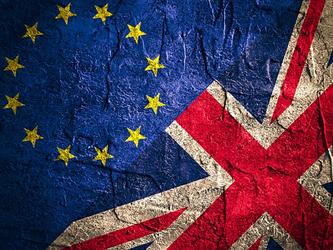Data flows: Data post-Brexit

Brexit is a word that evokes many feelings. The fraught decoupling of the UK and the European Union (EU) between the 2016 referendum and the Brexit agreement at the end of 2020 had a profound impact on the relationship between the two entities, with the withdrawal treaty coming into effect last year.
Data analytics and the transfer of information was relatively absent from the main arguments between the UK and EU during Brexit. An adequacy agreement, ensuring the ability to transfer data between the UK and EU without barriers, was ratified in 2021, but included a four-year ‘sunset clause’ allowing the deal to expire if there were significant changes to data protection laws and the General Data Protection Regulation (GDPR) in the UK in the meantime. The deal was crucial for the UK economy – Chris Combemale, chief executive of the Data and Marketing Association (DMA), claims that, without it, the UK economy could have lost up to £85bn.
Almost a year on, what does it mean for the UK’s data analytics industry? Combemale says there are opportunities for the UK, post-Brexit, if there is a cooperative relationship with Europe. “The UK must now progress new data legislation, such as the crucial National Data Strategy, knowing that a high-standards and innovation-focused approach rests in harmony with the European perspective. We must maintain a strong relationship with Europe while capturing opportunities with the rest of the world in matters of data transfers and standards.”
Sarah Hall, professor of economic geography at the University of Nottingham and senior fellow at think tank The UK in a Changing Europe, says there is a newfound appreciation in the UK of the importance of data analytics to the economy, as shown by data’s inclusion in trade deals with Japan and Australia.
“There are two sectors of the economy that are real strengths of the UK, but which were quite quiet in terms of the focus during Brexit negotiations: financial services and data analytics, and data and digital services,” Hall says. “Neither were included in the EU-UK Trade and Cooperation Agreement, and had side agreements instead, but they are sectors that have been identified as key opportunities for the UK post-Brexit, and that would suggest their success will be more centrally considered in future trade agreements.”
The question is whether there is further divergence. Last autumn, the UK government said it would “build on” key elements of the GDPR, but would diverge from what it called a “one size fits all” approach, saying that current regulations “place disproportionate burdens on many organisations”.
Hall says divergence from the current GDPR in the UK is possible, although it is likely to be piecemeal changes rather than a wholesale rewriting of the legislation. “There will be some sense of recognition of trying to reflect what the sector wants and what it might benefit from,” she notes. “The Treasury sees digital, data, artificial intelligence and blockchain as being important elements of future growth for the UK economy.”
Combemale adds: “To achieve sustainable economic growth across the digital sector, we must maintain the core framework of UK GDPR, with the development of industry codes of conduct as specified, and achieve clarity around the use of legitimate interests for marketing. The DMA and many of our members welcome the government’s approach in maintaining a high level of data protection, and support some of the suggestions that will create greater clarity and certainty for organisations and people.”
Long-term challenges remain, however. Dom Boyd, managing director of Kantar Insights UK, argues that a lot of international talent has left the country over the past two years. There has also been a drop in graduates from Europe and there is a longer-term challenge of attracting less experienced graduates because of new minimum skills standards.
“We benefit from expertise and experience that transcends borders,” he says. “It’s vital that the sector is alive to the extra barriers that Brexit poses to people coming to work in the UK from overseas, whether they are hard measures – such as tighter work-visa rules – or soft ones, such as the changing perceptions of Britain on the global stage.
“It’s still possible to attract the best and brightest talent, but we need to continue to invest and demonstrate to the international market that we are an excellent place to live and work.”
THIS ARTCLE WAS FIRST PUBLISHED IN THE April 2022 ISSUE OF IMPACT.

We hope you enjoyed this article.
Research Live is published by MRS.
The Market Research Society (MRS) exists to promote and protect the research sector, showcasing how research delivers impact for businesses and government.
Members of MRS enjoy many benefits including tailoured policy guidance, discounts on training and conferences, and access to member-only content.
For example, there's an archive of winning case studies from over a decade of MRS Awards.
Find out more about the benefits of joining MRS here.














0 Comments